As with many recipes, where humble origins precluded their inclusion in written texts, the history of the scone is shrouded in mystery and controversy. In Scotland this particular cake/bread hybrid or bannock is thought to have evolved from the Middle Dutch word schoonbrood (beautiful/fine bread). This was due to the wide cultural influences and exchanges through trade, which started as early as the 12th century along the South Eastern coast of the Kingdom of Fife. As an interesting addendum, fried bannocks and scones later became part of First Nation cuisine due to the rise of the fishing and fur trade in the 17th century.
In England scones have always been controversial, from the vexed question of how to pronounce the word, to internecine rivalry over the correct way to eat them. Scone aficionados from the two Southern counties of Devon and Cornwall, both famous for cream teas, each maintain that theirs is the correct way, cream then jam versus jam then cream, respectively.
Then there are the arguments, as with enriched doughs, as to when to eat them, some maintaining these are tea-time treats others that they are a breakfast cake. 'Afternoon-tea' instigated circa 1840, by the then Duchess of Bedford, is a relative newcomer on the culinary scene. Anna Maria Russell created this light meal to counteract what Queen Victoria referred to as "a sinking feeling" due to the long wait between the then relatively new institution of 'lunch' and the subsequently much later evening meal. Since the recipe for schoonbrood has been around for so much longer we could deduce that any hour of day is the right time for a scone.
Then there are the arguments, as with enriched doughs, as to when to eat them, some maintaining these are tea-time treats others that they are a breakfast cake. 'Afternoon-tea' instigated circa 1840, by the then Duchess of Bedford, is a relative newcomer on the culinary scene. Anna Maria Russell created this light meal to counteract what Queen Victoria referred to as "a sinking feeling" due to the long wait between the then relatively new institution of 'lunch' and the subsequently much later evening meal. Since the recipe for schoonbrood has been around for so much longer we could deduce that any hour of day is the right time for a scone.
Variations in scone recipes were also an indicator of social standing being dependent on the availability of specific grains and economic clout. These ranged from Victoria's favourite afternoon tea-time scone, made with the finest, white, wheat flour, split and covered with raw clotted cream and strawberry preserve, to the coarse oatmeal flat bread cooked on a griddle and eaten at breakfast with fat bacon. The two have something in common though, I've tried them both and both are delicious.
As an example of the true versatility of the scone here are just a few of the variations we eat:
Fruit scones...............adding a handful of dried fruit of choice or a mixture of fresh and dried, such as banana and date or cranberry and apple, to the Plain Scone recipe below.
Cheese scones ........... ditto but with a handful of sharp, hard, grated cheese, plus a pinch of cayenne pepper and obviously no sugar.
Oatmeal Farls & Potato Scones follow the link to my recipe for both
Coconut flour - gluten free scones - I'm still trying to perfect this recipe as although it is particularly tasty and makes a superb breakfast scone with scrambled egg. the dough does not hold together well once cooked so aesthetically not so good!
As an example of the true versatility of the scone here are just a few of the variations we eat:
Fruit scones...............adding a handful of dried fruit of choice or a mixture of fresh and dried, such as banana and date or cranberry and apple, to the Plain Scone recipe below.
Cheese scones ........... ditto but with a handful of sharp, hard, grated cheese, plus a pinch of cayenne pepper and obviously no sugar.
Oatmeal Farls & Potato Scones follow the link to my recipe for both
Coconut flour - gluten free scones - I'm still trying to perfect this recipe as although it is particularly tasty and makes a superb breakfast scone with scrambled egg. the dough does not hold together well once cooked so aesthetically not so good!
Here's the recipe we use for plain scones and we vary it too depending on what we have available because scones can be eaten throughout the day and are just as tasty whether savoury or sweet. I'll include some of our additions below to give you an idea of the versatility of this little cake. The trick is not to overwork the dough and not to keep them too long but then you won't anyway, believe me.
TEMPERATURE
Preheat the oven to 425°F - 220°CINGREDIENTS & EQUIPMENT
For 8 scones (I usually make double the quantity and they do freeze well once cooked if you accidentally have any left over)
1⅔ cups - 8oz - 230g of all purpose/plain flour
a pinch of sea salt
½ teaspoon of bicarbonate of soda
3 tablespoons - 1½oz - 40 g blond cane sugar
3 tablespoons - 1½oz - 40 g butter
1 egg made up to ⅔ cup - ¼pint - 140ml with milk
You will also need a buttered baking tin or sheet and a round or shaped fluted cutter of around 2" - 5cm. If you don't have a cutter then a straight-sided glass or mug works really well.
Sift the flour, rising agent and salt into a bowl. Add the sugar and diced butter. Using the tips of the fingers, rub the butter into the dry ingredients until the mixture resembles bread crumbs. (If you are making fruit or cheese scones, add them now.)
Add the egg and milk mixture and stir it into the rest using a round-bladed knife. When it begins to come together, use your finger tips to mould the dough into a ball.
Place the dough on a floured board or work surface and using a floured pin with a light pressure, roll it out to a thickness of around ¾" - 2cm. Alternatively you can used your floured palm to press the dough out.
Dip the cutter lightly in the flour and cut out as many scones as possible. Using the trimmings to form the last scone.
Place them on the prepared baking sheet and cook immediately for around 12 - 15 minutes.
Eat whenever and in whatever way you wish.
All the very best,
Sue
© Sue Cross 2019
1⅔ cups - 8oz - 230g of all purpose/plain flour
a pinch of sea salt
½ teaspoon of bicarbonate of soda
3 tablespoons - 1½oz - 40 g blond cane sugar
3 tablespoons - 1½oz - 40 g butter
1 egg made up to ⅔ cup - ¼pint - 140ml with milk
( as a great variation for the above we also use soured raw milk or the whey that is left when we make cream cheese - this creates a moister scone with a great flavour, particularly complimentary for the plain breakfast bacon-filled scones)extra flour for dusting the board and rolling pin.
You will also need a buttered baking tin or sheet and a round or shaped fluted cutter of around 2" - 5cm. If you don't have a cutter then a straight-sided glass or mug works really well.
METHOD
In order to have minimal contact with the dough it can be quite helpful to use a food processor to mix all the ingredients. However, we are powering-down in this household and getting rid of all electrical appliances or reusing them in other projects when they become unusable. So, we now make scones in the traditional way by hand.Sift the flour, rising agent and salt into a bowl. Add the sugar and diced butter. Using the tips of the fingers, rub the butter into the dry ingredients until the mixture resembles bread crumbs. (If you are making fruit or cheese scones, add them now.)
Add the egg and milk mixture and stir it into the rest using a round-bladed knife. When it begins to come together, use your finger tips to mould the dough into a ball.
Place the dough on a floured board or work surface and using a floured pin with a light pressure, roll it out to a thickness of around ¾" - 2cm. Alternatively you can used your floured palm to press the dough out.
Dip the cutter lightly in the flour and cut out as many scones as possible. Using the trimmings to form the last scone.
Place them on the prepared baking sheet and cook immediately for around 12 - 15 minutes.
Eat whenever and in whatever way you wish.
If
you enjoyed this recipe then please feel free to comment and share it
with your friends and on social media.
Hope to see you here again for another recipe from an old farmhouse in Normandie,
All the very best,
Sue
© Sue Cross 2019
RELATED RECIPES
 Soul Cakes for Samhain
Soul Cakes for Samhain
In
going out 'Souling', the children and adults of a village would visit
the houses of the wealthiest families begging for soul cakes and in
return offer to pray for the souls of departed relative They carried
baskets in which to collect their booty and often wore masks and
disguises. As no doubt you...read more

Scottish oatcakes, breakfast and cheese biscuit GLUTEN-FREE
'Oats n.s. [aten, Saxon.] A grain, which in England is generally given to horses, but in Scotland supports the people.'... read more
Oatcake Farls and potato cakes, flatbreads for all occasions GLUTEN-FREE
Two delicious flatbread recipes for a elegant snack or a sumptuous meal... read more


Chelsea Buns - Bite into History
Cookery and recipes are all about people, not just about how and what they ate but how they lived, what they felt and how they amused themselves in their daily lives. The Chelsea Bun is no exception, it grew out of a time of great upheaval and social change in which whole rural populations were..read moreFive Grain Cheese Biscuits
The five in question being a blend of wheat, rye, rice, barley and oats
and although we do not use these, as often suggested, for a breakfast
cereal, we do find them absolutely delicious when made into cheese
biscuits ...read more


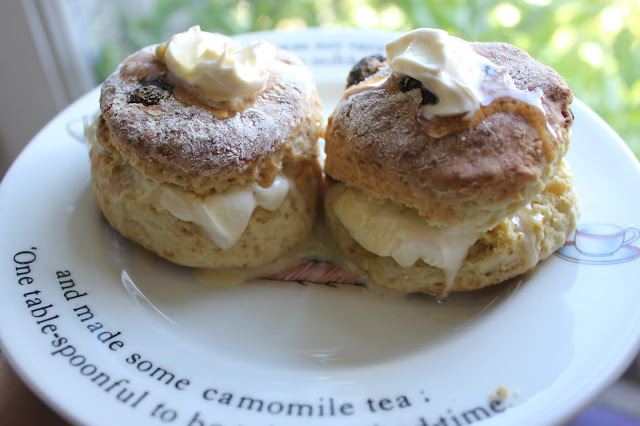

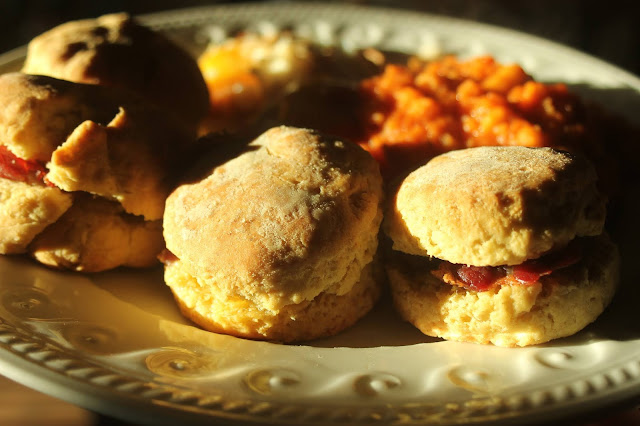
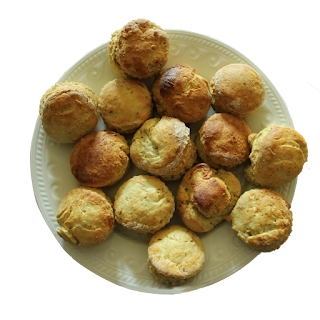
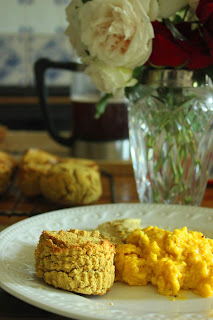

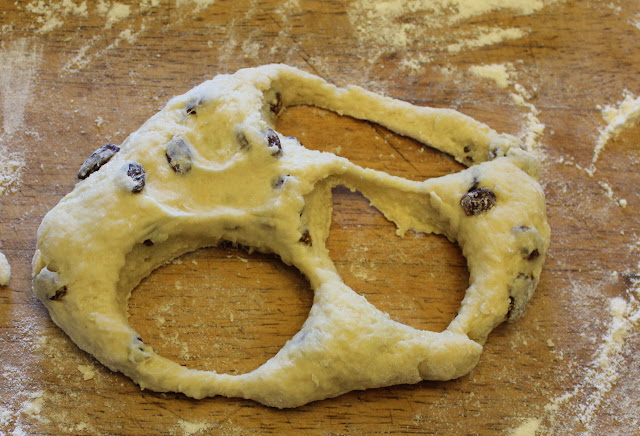
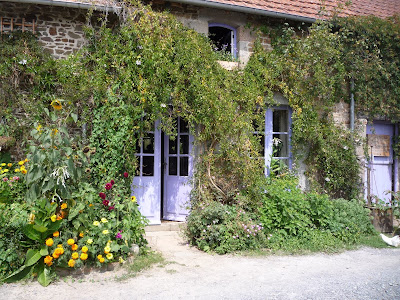


No comments:
Post a Comment